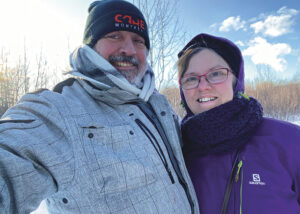I am listening these days to stories of how people and their churches are responding to the physical and emotional needs around them due to COVID-19. Every congregation is finding ways to help those around them who need food, assistance with their rent, connecting digitally or some other kind of accompaniment.
I am pleased to see that Mennonite Disaster Service (MDS) decided to make grants available to local congregations so that they can respond to those around them facing COVID-19 hardship. This is an intriguing decentralized distribution model, empowering local congregations to be the centre of response in this disaster. My own congregation received a grant. I love it.
I also listen to the 12 regional representatives of Mennonite World Conference (MWC) talk about the impact of COVID-19 in their countries, and how congregations around them are responding with whatever funds they can find in their own congregations. The reps speak constantly about the hunger all around due to lockdowns and loss of daily wages. They talk about churches identifying people who are not eligible for any minimal government assistance, in order to make sure they have some food. They talk about using their youth groups to deliver food packets to people in need, especially in countries that imposed lockdowns only on older people. I love it.
My policy-oriented mind starts to wonder about how the role of the church changes in different countries, depending on the role and capacity of the government. We are privileged to live in Canada, a country with a relatively generous government that has provided basic financial support to most people who lost their jobs due to COVID-19.
As I read through the list of the MDS-funded projects in Canada, I see that many are providing strategic assistance to people on the margins in Canadian society. Does the role of the church become smaller in a country that has a relatively generous government system of support?
MWC has created a COVID-19 Fund that is supported collaboratively by the North American Anabaptist mission and service agencies, and some of the national and European churches, including Mennonite Church Canada.
As Siaka Traoré of Burkina Faso says, “This fund is the Body of Christ responding to the challenge of our generation, to do what we can do in celebrating and mobilizing our global communion.” Like the Spirit of MDS Fund in Canada, these grants go to Global South churches, so that they can respond to the needs around them.
The MWC COVID-19 Fund has already run out of funds, after approving 27 projects in the Global South—27 projects from a total of 49 countries and about 85 national member churches. This fund has not gone very far to help the churches in what they are already doing.
César García, MWC’s general secretary, did a rough calculation of funds being made available by North American Anabaptist agencies to Anabaptist churches for local responses. He found that about 55 percent of that funding has been made available to North American churches, and about 45 percent has been made available to Global South churches. Canada and U.S. member churches constitute about 17 percent of the total MWC membership. Is this funding distribution appropriate?
I know, we respond to needs that have names and faces, in our own churches and communities. The impact of COVID-19 is heavy on our hearts, our lives and our own communities. The impact is even heavier in the Global South, where governments are smaller and churches carry bigger roles. How might we help those churches do even more?
Arli Klassen is a member of First Mennonite Church, Kitchener, Ont., and a staff member at Mennonite World Conference.
Read more The Church Here and There columns:
Disillusionment and hope
Too much news?
Salt for the earth
Being the church in risky times
Partners in the body of Christ








Leave a Reply
You must be logged in to post a comment.